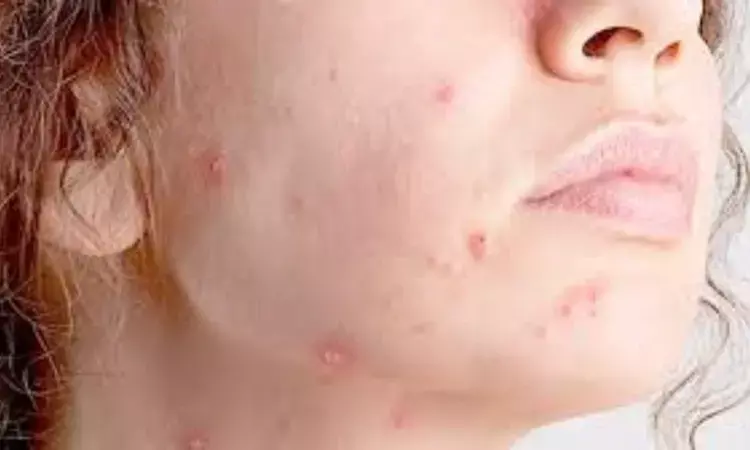- Home
- Medical news & Guidelines
- Anesthesiology
- Cardiology and CTVS
- Critical Care
- Dentistry
- Dermatology
- Diabetes and Endocrinology
- ENT
- Gastroenterology
- Medicine
- Nephrology
- Neurology
- Obstretics-Gynaecology
- Oncology
- Ophthalmology
- Orthopaedics
- Pediatrics-Neonatology
- Psychiatry
- Pulmonology
- Radiology
- Surgery
- Urology
- Laboratory Medicine
- Diet
- Nursing
- Paramedical
- Physiotherapy
- Health news
- Fact Check
- Bone Health Fact Check
- Brain Health Fact Check
- Cancer Related Fact Check
- Child Care Fact Check
- Dental and oral health fact check
- Diabetes and metabolic health fact check
- Diet and Nutrition Fact Check
- Eye and ENT Care Fact Check
- Fitness fact check
- Gut health fact check
- Heart health fact check
- Kidney health fact check
- Medical education fact check
- Men's health fact check
- Respiratory fact check
- Skin and hair care fact check
- Vaccine and Immunization fact check
- Women's health fact check
- AYUSH
- State News
- Andaman and Nicobar Islands
- Andhra Pradesh
- Arunachal Pradesh
- Assam
- Bihar
- Chandigarh
- Chattisgarh
- Dadra and Nagar Haveli
- Daman and Diu
- Delhi
- Goa
- Gujarat
- Haryana
- Himachal Pradesh
- Jammu & Kashmir
- Jharkhand
- Karnataka
- Kerala
- Ladakh
- Lakshadweep
- Madhya Pradesh
- Maharashtra
- Manipur
- Meghalaya
- Mizoram
- Nagaland
- Odisha
- Puducherry
- Punjab
- Rajasthan
- Sikkim
- Tamil Nadu
- Telangana
- Tripura
- Uttar Pradesh
- Uttrakhand
- West Bengal
- Medical Education
- Industry
Use of calcium channel blockers linked to more severe actinic keratosis of face and scalp

Brazil: New research published in the International Journal of Dermatology has confirmed lower skin phototype classifications, older age, and a personal history of skin cancer as severity risk factors for actinic keratosis (AK). The use of calcium channel blockers (CCBs) was associated with more severe AK.
Actinic keratosis is a skin condition associated with sun exposure, age, and immunosuppression. Certain drugs, such as calcium channel blockers and photosensitizing medications have been linked to AK. Ingrid S. Gioppo, Hospital Geral de Curitiba, Curitiba, Brazil, and colleagues explored the impact of behavioural, individual, and exposure factors on the severity of AKs on the scalp and face in a multicenter cross-sectional study.
The study involved immunocompetent individuals with at least one actinic keratosis on their scalp or face and assessed sun exposure and protection, demographic factors, history of skin cancer, and use of medications within the last six months. The primary outcome of the study was determined as the Actinic Keratosis Area and Severity Index (AKASI) score, and the variation in AKASI scores was evaluated using a hierarchical generalized linear model, adjusting for age, gender, and skin prototype. A total of two hundred seventy subjects between 39 and 92 years were evaluated.
The study revealed the following findings:
· The majority had phototype I or II (77%), male gender (51%), low adherence to sunscreen use (29%), and personal history of skin cancer (55%).
· The use of photosensitizing medications was reported by 61%.
· Through multivariate analysis, older age (βSE = 0.14), lighter skin phototype (βSE = 0.15), sunburning (βSE = 0.12), history of skin cancer (βSE = 0.12), and use of CCBs (βSE = 0.11) were identified as independent risk factors for AK severity.
· Photosensitizing drugs were not identified as risk factors.
"We confirmed lower skin phototype classifications, older age, and a personal history of skin cancer as severity risk factors for actinic keratosis, while CCB use was associated with more severe AK," the researchers concluded.
Reference:
Gioppo, I. S., Martins, C., Santos, S. S., R. Preto, J. F., Miola, A. C., & Miot, H. A. (2023). Association between calcium channel blockers and the severity of actinic keratosis on face and scalp: A cross-sectional study. International Journal of Dermatology, 62(12), 1511-1519. https://doi.org/10.1111/ijd.16871
Dr Kamal Kant Kohli-MBBS, DTCD- a chest specialist with more than 30 years of practice and a flair for writing clinical articles, Dr Kamal Kant Kohli joined Medical Dialogues as a Chief Editor of Medical News. Besides writing articles, as an editor, he proofreads and verifies all the medical content published on Medical Dialogues including those coming from journals, studies,medical conferences,guidelines etc. Email: drkohli@medicaldialogues.in. Contact no. 011-43720751


